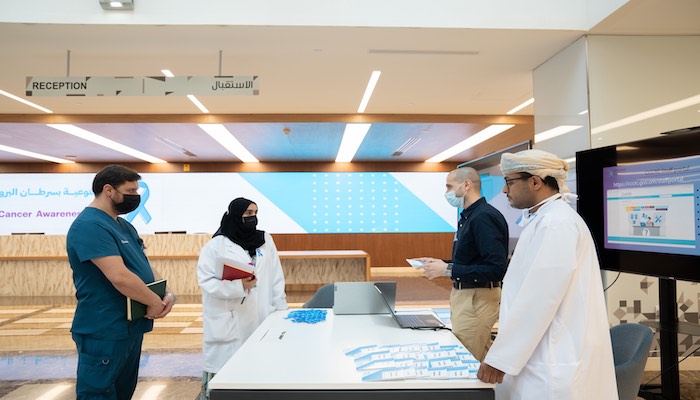
Muscat: Prostate cancer represents the most common cancer diagnosed amongst men worldwide. According to the latest Ministry of Health Report on Cancer Incidence in Oman, prostate cancer was the most common cause of cancer in Omani men, with 113 new cases documented in 2019.
“The likelihood of developing prostate cancer increases with age, with a probability of around 1 in 8 men being diagnosed with the disease in their lifetime.” said consultant Medical Oncologist Dr Munjid Al Harthy. In honor of the International Prostate Cancer Awareness Month, the Sultan Qaboos Comprehensive Cancer Center’s (SQCCCRC) Genitourinary (GU) Cancers Program held a center wide awareness and educational campaign for the community, patients, and staff.
“It is important for all men to be aware of the cancers diagnosed in their family because we know that men who have a first degree relative who was diagnosed with prostate cancer before the age of 60 have a much higher chance of being diagnosed with the disease themselves. A history of other cancers in the family including breast, colorectal, ovarian or endometrial cancer may also suggest a familial cause for cancer that should be discussed with your doctor to decide the necessary preventative measures that can be taken to decrease your risk of getting the disease.” said Consultant Urologic Surgeon Dr Hilal Al Rashdi.
Some research suggests that people who are overweight have a higher chance of developing prostate cancer and it is therefore important to maintain a healthy diet, weight and exercise regimen. Dr Al Harthy explained: “One of the ways prostate cancer can be diagnosed early is by getting a blood test called the PSA (prostate specific antigen) which is usually elevated in patients with prostate cancer even before symptoms from the disease have begun. A physical exam of the prostate is also an important part of the diagnosis which should be done by an expert urologist. If an abnormality is detected, your doctor may recommend further testing using imaging tests and a biopsy (tissue sample) of the prostate may be taken.”
“Interpreting the results of the blood and tissue tests is complex and requires a team of dedicated specialists to come up with the most accurate diagnosis and treatment plan for the patient. At SQCCCRC, all new cases of prostate cancer are discussed by a multidisciplinary team of urologists, radiation oncologists, medical oncologists, pathologists and radiologists and a personalized plan of care is tailored to the individual patient to ensure the best treatment outcome possible,” added Dr Munjid Al Harthy.
The treatment options for patients with prostate cancer continue to expand every year with scientific breakthroughs in robotic surgical approaches, radiation treatments, and innovative hormonal, immune based and nuclear therapies being offered to patients in hopes of improving their chances of cure. Continued research and support from the community is needed to ensure that no one is left behind in our battle against cancer. With increased awareness against this disease we are “Stronger Together”.